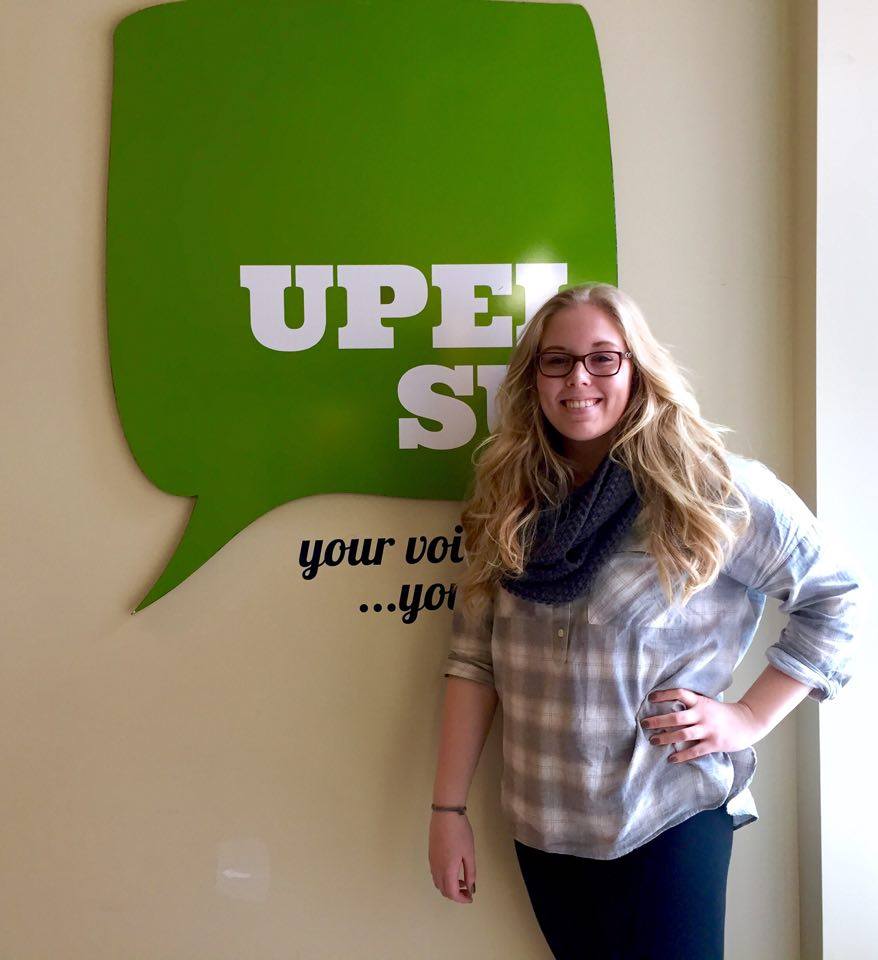By: Drew MacEachern
For many students, the most visible members of the Student Union are the Executive. However, they do not act alone. Most of the Executive’s work is done in relation to the SU Council. Despite this, the Council; its representatives and members, seem to be less well-known. As such, the Cadre has decided to shine the spotlight on certain members of council and the positions they hold in order show often overlooked elements of the Student Union’s mandate and structure.
First up is Accessibility Rep Kaylee Blackett. The Accessibility Representative, as described by Blackett, are to liase between the University administration/Student Union and the student body in order to ensure that their accessibility needs are met, whether for mental or physical disabilities. As Blackett explains, despite the fact that accessibility issues cover a broad range of people,”everyone’s kind of put together under the commonality that they just need support so that they can have a successful university experience.”
Candidates for the position must actually be registered with Accessibility Services, while being a full-time student. Blackett explained that she was originally inspired to run because she knows the impact that a disability can have on ones university experience. She told us that she is ultimately registered with Accessibility Services because of Attention Deficit Disorder, but has also suffered from depression and anxiety. She explained that the help she received from Accessibility Services was extremely beneficial, but that she originally didn’t think that she could go to them for help because she had the image that disability was purely physical. Subsequently, raising the profile that disability can be ‘invisible’ as well as visible, thereby encouraging  more students to seek help if they need it, has been one of Blackett’s goals for the year.
Blackett also explained that raising awareness of accessibility issues in the broader student body is also a part of her goals. She explained that while disability is often thought of as a physical ailment, disability can also be ‘invisible’, especially when dealing with mental illness. She also emphasized that everyone is susceptible to disabilities, whether mentally or even physically; anyone could suffer an accident that can render them disabled.
The Cadre also asked Blackett about issues that she would like to see addressed by the Student Union or the university administration around accessibility issues. She emphasized the need to put more resources into Accessibility Services, since “we’re almost there” when it comes to addressing many accessibility issues on campus, but fall short of doing so due to budget and staffing shortages. She specifically pointed out that the University was only able to partially complete its planned renovations of buildings on campus to make them more accessible when the allotted funding ran out. While admitting that lack of resources is a legitimate concern, she did emphasize that the importance of finishing be highlighted and emphasized, which can be done through general student awareness of the problem.
In regards to her own work on Council, Blackett explained that she was planning on going through several policies of the Council to see whether any insight regarding accessibility issues could be added, as well as the fact that she has been working on ways to create scholarships for students with disabilities. She also explained that Accessibility Services had previously introduced her through a newsletter to all their registered students, to further help her liase with her student body and the SU.
Blackett is in her fourth year at UPEI, and her position will be open during the next Council elections in March. When asked if she had anything to say about or to people who were considering running for her position, she emphasized that people should run “if they’re in it”. She extrapolated this by explaining that the bare minimum of the job involves going to Council and committee meetings, which she has tried to expand upon through passion and taking on new initiatives. As Blackett told the Cadre, “It’s such an important role; I take my role very seriously and I hope that whoever fills it after me is able to also take it very seriously  and to make a difference and to change lives because that’s ultimately what we can do.”
